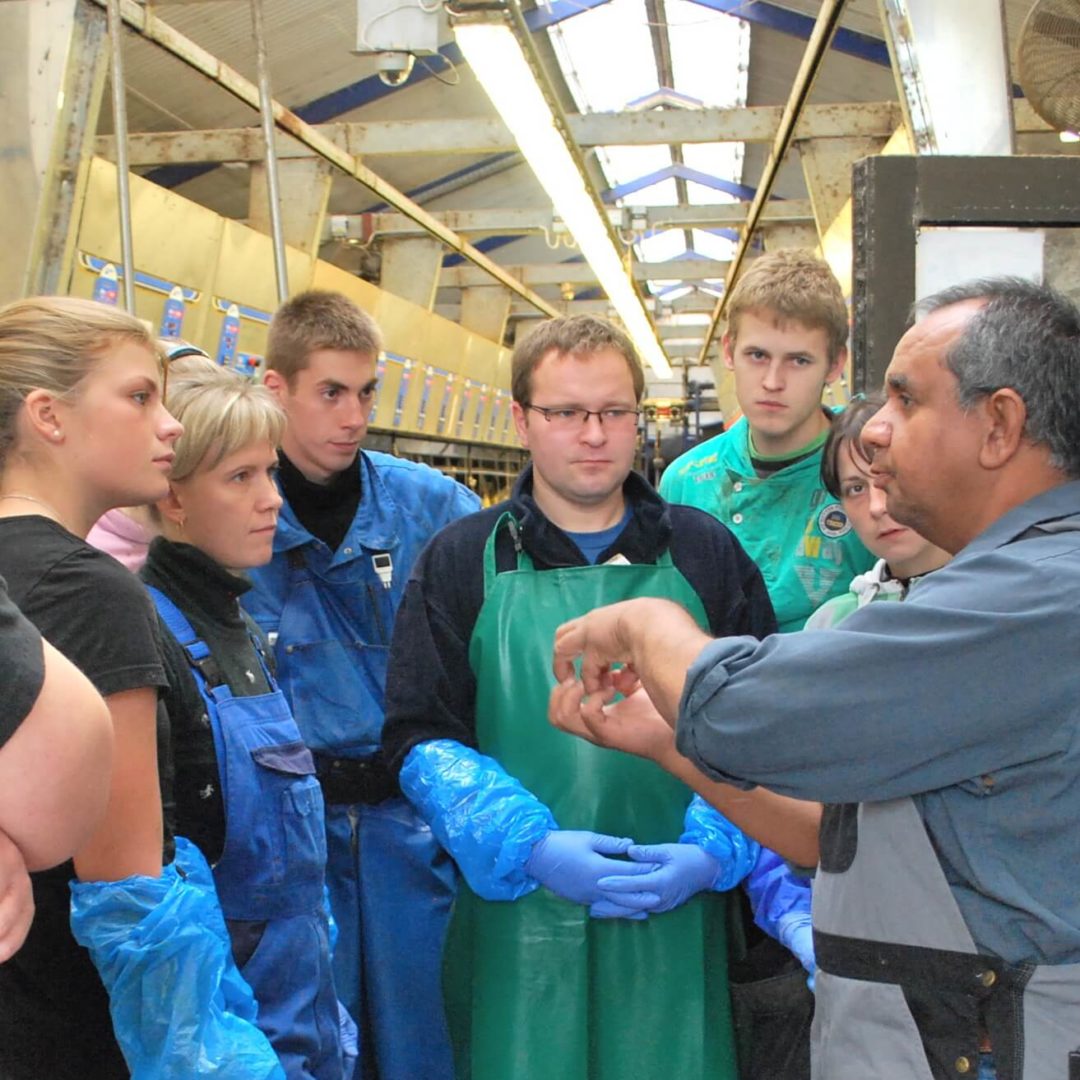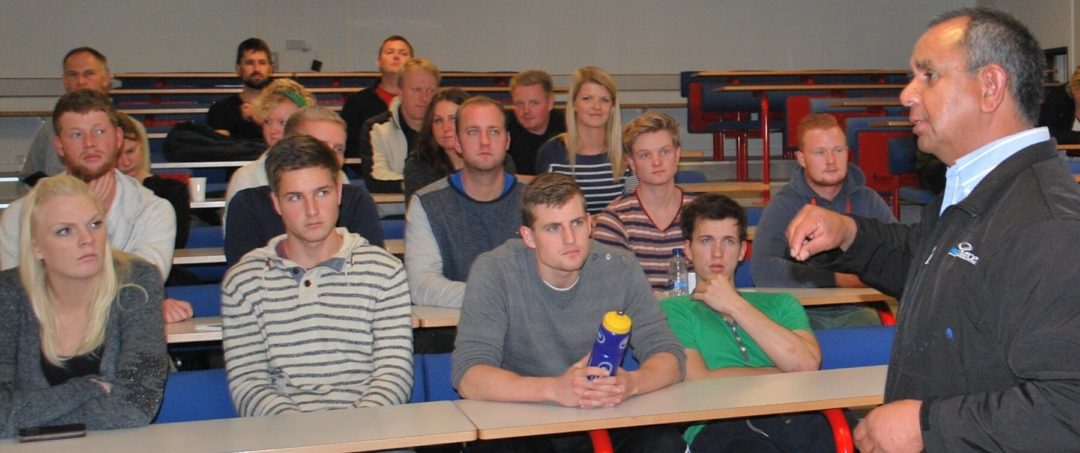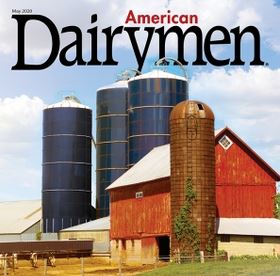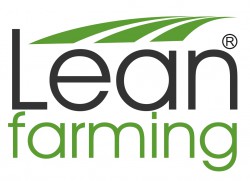This post is also available in:
 Danish
Danish
Yes, there is a shortage of agricultural labor in all countries. It is difficult to attract manpower and difficult to retain people. When the labor market is under pressure, employers must do something extra. The first thing you might think is that wages should be higher. Wages must be competitive, but that’s not the only factor. In order to attract labor, the farm must have a proper image of both production and management. To retain the employee, it matters how the employees are received and how the expectations are reconciled. It matters whether the new employee meets respect and gets good feedback on his or her efforts.

Juan Quezada is recognized as one of the best in the world
It is also not easy in the United States to attract labor to agriculture. But MilkSource LLC succeeds; not least because of the effort Juan Quezada makes and the systematic approach they have to attract and retain employees. The basic value is respect for people and animals. It is very inspiring to hear about both the method and the culture behind it. MilkSource LLC has expanded greatly and has gone from 200 to over 600 employees in just a few years.
We are proud that we have a good and lasting cooperation with one of the world’s best in its field. Together with Juan Quezada and Danace, we offer training and management sparring.
Michael Cox has written an article in the American Dairymen Magazine about Juan Quezada, whom he calls Master-Mentor. You can read my translation of the article below or you can read the original article here: Team Culture: Discussions with a Master-Mentor

Team Culture: Discussions with a Master-Mentor
By Michael Cox

When we think of Apple, we think of Steve Jobs; when we think of Tesla, we think of Elon Musk; Richard Branson comes to mind when we think of Virgin Airways. CEOs and founders often receive all the attention and name recognition when a company reaches success milestones; yet in every success story, there are always talented employees in the background that are critical to bringing a founder’s vision of the future into reality.
For Milk Source LLC, one of their ‘under the radar’ gurus and a key part of their successful growth from 180 cows to more than 30,000 cows is Mr. Juan Quezada. American Dairymen Magazine recently had the privilege of speaking with Juan, to discuss how the master-mentor leads his people and creates a solid culture for business expansion.
In this first article of a two-part series on team culture, Juan discusses the practical approach Milk Source uses to starting new-hires off on the right track. In next month’s edition of American Dairymen, we’ll learn how Juan’s ‘soft-skills’ of people management improve farm results, and how others can learn these skills.
After 39 years in the dairy industry, Juan’s role has evolved and changed over the years. Today, he acts as a senior member of the Milk Source family, as Director of Training and Development. His role and influence throughout the company’s dairies is large and far reaching, as his training involves everything from new staff to various levels of management within the company.
For most dairy producers, finding and retaining good help on the farm is a constant struggle and source of worry. Not so for Milk Source, says Juan, “Our ‘problem’ is we have too many people wanting to work with us. “Sure, we have a natural, small amount of churn, but our reputation attracts a steady stream of new people wanting to join our team.” While Juan mentions the word ‘respect’ frequently while talking about staff and training. Respect, he emphasizes, is the key ingredient to retention. Perhaps it’s his practical, procedural approach to training new hires that is resulting in excellent retention, with staff feeling respected as a consequence. The Milk Source HR Team’s ‘on-boarding’ process for new staff is relatively simple, but it is rare to find a program within the dairy industry that is as thorough, planned and successful.
Expectations vs. Reality
“Our on-boarding program follows the new employee for one full year. We don’t throw our new guy into the barn on Day 1, we take the time to set out our expectations, what we’ll do for you, what we want you to do for us, what promotions can happen if you perform well, and what will happen if you repeatedly break our rules,” says Juan.
Taking the time to find out the expectations of the new employee is beneficial, says Juan. While some people want growth opportunities, other staff simply want a steady roster and paycheck. Those differing expectations can change the training a person is required and willing to receive. On Day 1, Juan shows the new-hire a video about Milk Source and talks with them about the Milk Source farm manual, which details the new-hires work activities for their specific role. Setting out clear expectations from the very first day sets the standard of performance that is required to be a Milk Source team-member.
“This is a serious business we’re operating,” says Juan, “We let you know that we will have fun, and there is a path for progression, if you want it, but you have to play by our rules.” Milk Source uses state employment guidelines and explains to new hires that a verbal warning, followed by a written warning signed by both parties will occur if an employee repeatedly breaks the rules or deliberately underperforms. For more serious incidences — such as violence or animal mistreatment — immediate termination of employment will be carried out. Once everyone knows where they stand if things don’t go to plan, Juan believes the focus can then turn to making sure the new person feels comfortable and at-home in their new role, and gradually improving the work performance.
Facetime
The unique part of the Milk Source on-boarding process is the structured weekly ‘follow-up’ chat with the new employee. “This process is formal and planned out, with a schedule of weekly chats with our new team-member,’ says Juan. He believes that having the schedule of meetings shows the new hire how much Milk Source wants them to succeed in the business and offers the employee a regular point of contact to air any issues or ask for help. “Week 1, I give feedback on how the person is doing, and also ask for feedback. How’s it going? Are you happy? Is your family OK? Have you any problems at work or at home that you want to talk about? Do you like the role? What do you struggle with on the job? Etc. etc.,” says Juan. On week 2, Juan repeats the discussion again, and continues to do so right throughout the year.
Connection
The regular engagement between company and employee allows both parties to feel connected to each other and this drives accountability, and therefore staff performance, which in turn leads to staff promotion. “All our managers are ‘home-grown’ from within the company. People starting out with us need to be able to see a path for progression, and a history of progression,” says Juan.
With Milk Source being an expanding, multi-location business with dairies and heifer rearing sites spread across four states, opportunities can be found for people with ambition. No outside managers are ever hired into the company. Given all the time and effort that Juan and Milk Source put into training their staff, it makes sense to utilize the skills and talents that have been nurtured and grown within the company.



